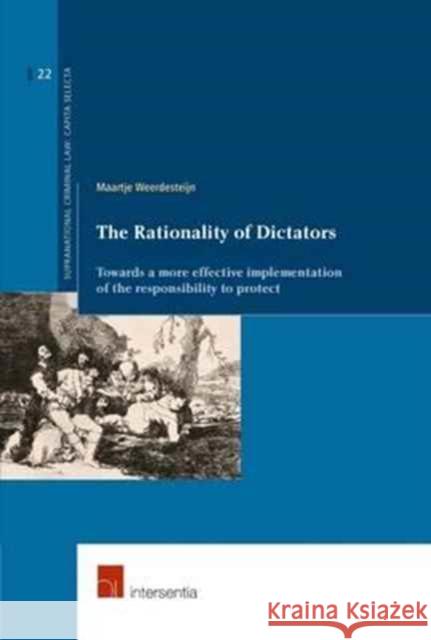The Rationality of Dictators: Towards a More Effective Implementation of the Responsibility to Protectvolume 22 » książka
The Rationality of Dictators: Towards a More Effective Implementation of the Responsibility to Protectvolume 22
ISBN-13: 9781780684437 / Angielski / Miękka / 2016 / 400 str.
The Rationality of Dictators: Towards a More Effective Implementation of the Responsibility to Protectvolume 22
ISBN-13: 9781780684437 / Angielski / Miękka / 2016 / 400 str.
(netto: 444,62 VAT: 5%)
Najniższa cena z 30 dni: 463,24 zł
ok. 30 dni roboczych.
Darmowa dostawa!
A non-democratic system of government is an important risk factor for the perpetration of atrocity crimes, meaning genocide, crimes against humanity, war crimes, and ethnic cleansing. At the 2005 World Summit, the international community accepted the responsibility to protect populations from these crimes when the domestic state is failing to do so. The implementation of the responsibility to protect, however, leaves much to be desired. This book studies the role dictators play in orchestrating mass atrocities, and it analyzes their decision-making process when the international community tries to stop or mitigate the perpetration of these crimes. Through a comparative case study of Pol Pot and Slobodan Milosevic, this book argues that the role ideology plays in the decision-making process of the dictator is an important determinant of their responsiveness. In doing so, it challenges the common notion that all dictators are primarily motivated by retaining their position of power. Instead, the author argues that while dictators are frequently characterized as raging mad men, this is not necessarily always the case. Rather, she argues in favor of a more nuanced approach to rationality that uses the work of Max Weber to acknowledge that different types of rationality exist when analyzing the decision-making process of dictators. This book will be an indispensable resource for scholars who are interested in the role of dictators in mass atrocities, and for anyone who wants more insight into the rationality of dictators. (Series: Supranational Criminal Law: Capita Selecta, Vol. 22) Subject: Criminal Law, Politics]











